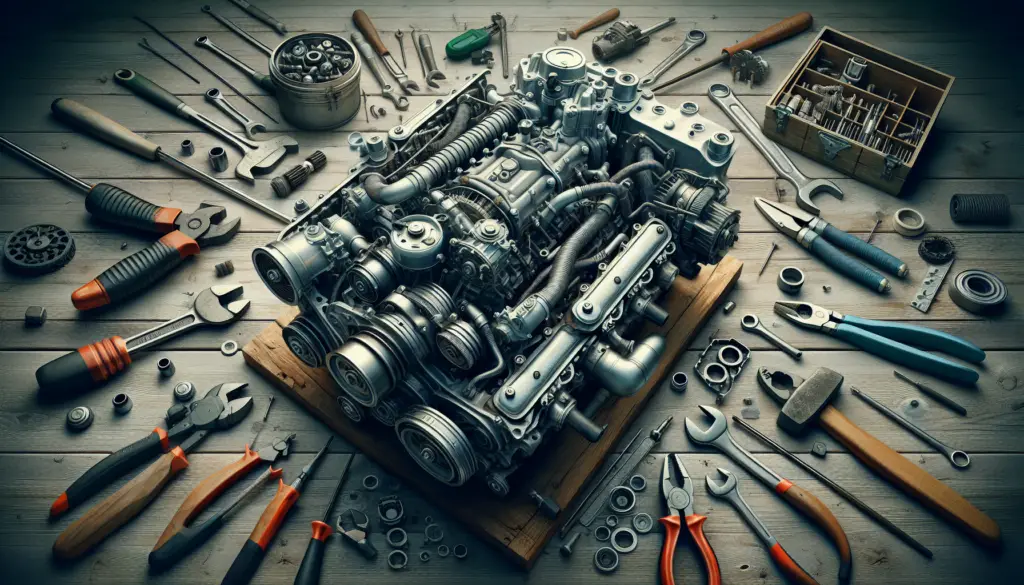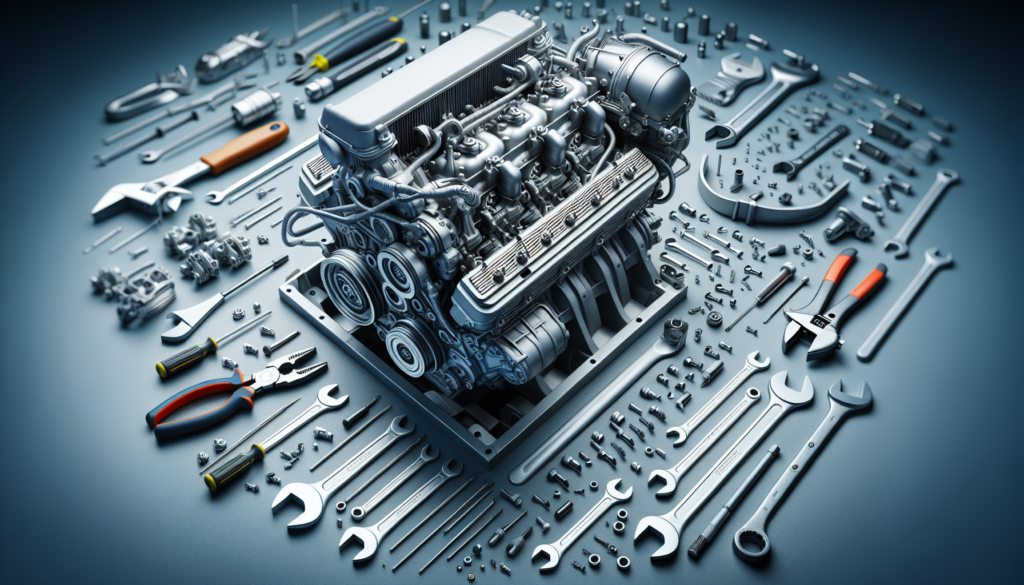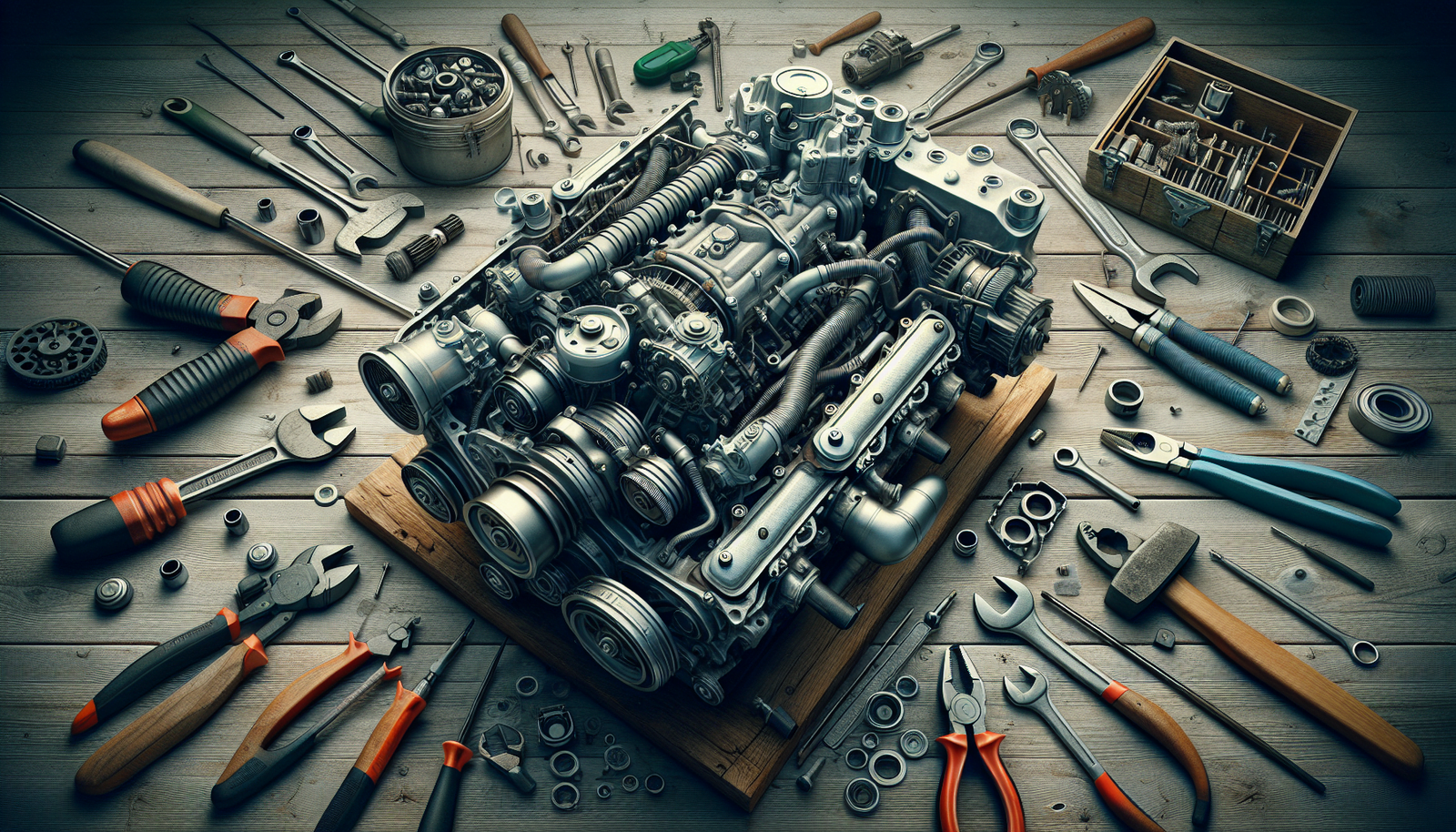You’re out on the water, the wind in your hair and the sun on your face, ready for a day of relaxation when suddenly your boat engine decides not to cooperate. No need to panic yet! In the article “Common Boat Engine Problems and How to Fix Them,” we’re going to guide you through some of the most frequent issues boat owners face and offer some practical solutions. Whether it’s a fuel system issue, cooling system problems, or a faulty propeller, the ante is upped, turning your smooth sailing day into a challenging repair session. Let’s equip you with the right knowledge.

Overheating Issues
Ah, the dreaded overheating – a common issue that can be enough to ruin any boating journey. You might experience this problem in various forms, from your boat slowing down unexpectedly to the failure of the engine altogether. So, let’s learn some more about this issue and how to deal with it.
Identifying Overheating Symptoms
If your boat engine starts to overheat, it will not suddenly going to shut off but will give you some pretty clear signs. You may notice a loss of power or sounds that are out of the ordinary. Your warning lights may also begin to flash or stay on. If you catch these early enough, you may be able to address the problem before significant damage is done.
Causes of Overheating
Various factors can cause overheating. This could include a damaged water pump or a clogged cooling system, both affecting the engine’s ability to cool itself. Likewise, a broken thermostat, low coolant levels, or poor quality fuel can lead to problems.
Fixing Overheating Problems
Now, how can you adress these problems? Simple: pay close attention to your cooling system. Flush it regularly and ensure the water pump is in good working order. Always make sure you’re using the right fuel for your engine and check your thermostat regularly for any signs of malfunction.
Fuel-Related Problems
Fuel problems rank among the most common issues boaters face. They can be hard to spot but can be identified if you know what to look for.
Recognizing Fuel System Failures
While they can be difficult to identify, a fuel system failure may become apparent through performance issues such as jolting starts or irregular boat speed. In severe cases, your boat may not start at all.
Reasons for Fuel Problems
Fuel problems often arise from poor fuel quality, incorrect fuel type, or contamination. Issues can also occur due to clogged the fuel lines or a degraded fuel filter.
Resolving Fuel-Related Issues
To resolve these issues, ensure that you’re using the correct, high-quality fuel. Regularly change your fuel filters and clean your fuel lines. If the problem persists, it may be wise to call in a professional.
Oil-Related Problems
Oil leakage is another common problem for boat engines. If left unchecked, it can lead to serious engine damage.
Detecting Oil Leakage
Typically, you will spot a dark, oily stain in the water around your boat or in the bilge. Oil can also drip from the boat when it’s hoisted out of the water.
Underlying Causes of Oil Leaks
Oil leaks can be due to various factors such as old gaskets, cracks in the engine block, or failing seals.
How to Fix Oil Leaks
Finding the exact source of an oil leak can be tricky, but once identified, it’s usually a simple fix. Replace the defective seal, gasket, or engine part causing the leak to prevent further problems.

Electrical Failures
Electrical failures can be one of the trickiest problems to solve due to their complex nature.
Symptoms of Electrical Failures
Common symptoms may include the boat’s radio, lights, or electronic devices not functioning correctly or not at all.
Root Causes of Electrical Failures
Typically resulting from either corrosion, blown fuses, damaged wiring, or a depleted battery, electrical problems can be a significant nuisance.
Rectifying Electrical Failures
Start by checking your wiring for any visible damage, then test your battery. Try replacing any blown fuses and dismantling your power panel to check for corroded terminals.
Propeller Problems
Even if not technically a part of the engine, propeller problems can impact your boat’s efficiency a lot.
Identifying Damaged Propeller
Dings or bends in your propeller may cause your boat to shake or decrease its speed as it affects the propeller’s balance and performance.
Reasons for Propeller Issues
This typically occurs due to impact damage from underwater debris or due to general wear and tear.
Resolving Propeller Damage
To resolve this, inspect your propeller after use for any obvious signs of damage or wear. If something seems off, it might be time to replace it.
Starter Motor Issues
Problems with your starter motor can leave you stranded. Recognizing these issues early is essential to prevent this from happening.
Recognizing Starter Motor Failure
Some initial signs of starter motor failure include hearing a clicking sound when turning the key, or the motor not turning over at all despite your battery working fine.
Causes of Starter Motor Problems
Starter motor problems often arise due to a faulty ignition switch, a poor electrical connection, or a worn-out motor itself.
Fixing Starter Motor Issues
While some fixes like cleaning the electrical connections can be done by you, other fixes like replacing the ignition switch or the motor itself may require a professional’s help.
Battery Problems
A problematic battery can be a boat owner’s nightmare, with issues often striking at the most inconvenient times.
Signs of a Bad Battery
Your boat may struggle to start, or electrical systems may not function as they should if there’s a problem with the battery.
Common Reasons for Battery Failure
Batteries can fail due to a variety of reasons, such as an alternator failure, leaving the lights on, or simply the battery’s age.
Steps to Replace a Battery
Though the process will vary depending on your boat’s specific engine model, replacing a battery typically involves removing the old battery, cleaning the connections, and installing a new one.
Cooling System Concerns
Thankfully, cooling system issues are generally pretty easy to identify and resolve before they lead to serious problems.
Signs of a Faulty Cooling System
A car-like smell of steam or mist coming from the engine compartment while you’re running, or an overheating engine can all be signs of a cooling system problem.
Underlying Causes for Cooling System Failure
These problems typically result from a clogged heat exchanger, a damaged impeller, or a failed thermostat.
Maintaining and Repairing the Cooling System
Routine maintenance includes cleaning your heat exchanger or replacing your impeller. Should these not resolve the issue, it might be time to replace your thermostat.
Transmission Troubles
Transmission troubles can lead to a breakdown if not tended to immediately.
Recognizing Transmission Problems
Problems with the transmission are often noticeable. You might hear unusual noises or find it hard to steer your boat.
Root Causes of Transmission Troubles
A low oil level, worn-out parts, or incorrect oil can all lead to transmission troubles.
Fixing Transmission Issues
Proactive maintenance and using the correct oil for your boat should prevent most transmission troubles. However, in case of an issue, a marine mechanic should be your first call.
Exhaust System Problems
The exhaust system is a key component of your engine’s operation. If its not working properly, you might encounter some serious issues.
Identifying Exhaust System Issues
Increased engine temperatures and fumes are common signs of a problem in the exhaust system.
Common Exhaust Problems and their Causes
Exhaust issues often occur due to leaks, blockages, or worn-out parts.
How to Resolve Exhaust System Problems
Regular maintenance should keep most issues at bay. In case of a problem, seek a mechanic’s help to pinpoint the exact issue and determine the best resolution.


[…] common engine problems can range from an engine that won’t start or overheating to issues like an engine misfire or oil contamination. […]
[…] are some problems with your boat’s engine that will require the help of a professional to […]